
Spread the Word is pleased to be partnering with the Colwill & Peddle Literary Agency for our latest 1-2-1 feedback opportunity. From Monday 3 November 2025, we will be accepting submissions for:
- Mystery
- Romance
- Horror
Charlotte Colwill and Donna Greaves, literary agents at Colwill & Peddle Literary Agency, are offering a maximum of 8 short feedback sessions for submissions by writers from underrepresented backgrounds based in the UK.
Each agent will be offering up to four 20-minute sessions by phone or video.
What the agents looking for:
Charlotte is looking for romance (YA, adult, crossover and LGBT) including romantasy, crime and thriller including cosy, procedural, and domestic thrillers, and horror of any kinds. I love new twists on old themes, clever concepts, twisty plots, unusual perspectives, and writing that is commercial and full of personality. Above all, a story and characters that really make me feel something.
You can visit Charlotte’s agent page here.
Donna is looking for adult commercial, book club and accessible literary fiction with a mystery at its heart. She is particularly drawn to voice-led narratives, unconventional settings, humour and rich storytelling that interweaves cultural, political or historical context. She will consider crime that fits the bill and possibly fantasy and sci-fi if it has commercial, crossover potential – in other words, books that can be enjoyed by a wide audience.
You can visit Donna’s agent page here.
We define writers from backgrounds under-represented in publishing as those who:
- From a lower socio-economic background as defined by the Civil Service Diversity and Inclusion guidance
- Have experienced a lack of academic and/or vocational training opportunities – i.e. have not been able to study/train to their full potential due to low income, ill health, being a carer etc.
- Are or have been a carer
- Have experienced homelessness
- Are a single parent
- Have a disability
- Are Black, Asian, or Global Majority
- Are a member of the LGBTQIA+ community
How to apply
Please note this opportunity is only open to unpublished and un-agented writers based in the UK. Apply via Submittable. Only one entry per applicant will be accepted.
The link to apply is here. We will be open for submissions at midday on Monday 3 November 2025.
To apply, you will need to upload 3 documents:
- A covering letter of 1-2 pages that includes: A little information about yourself and your motivations for your project, how you meet the criteria for this opportunity and a summary of your writing endeavours to date (e.g. Have you taken part in writing development opportunities? Have you mainly been writing on your own at home?)
- A one-page synopsis
- An extract from your project (3,000 words maximum)
If you are a disabled writer, there is the option to submit visual or audio submissions. Please get in touch with [email protected] if you need any support with this.
Charlotte and Donna will be giving feedback on the documents that you submit.
Timeline
- Submissions will open at midday on Monday 3 November 2025
- The deadline for submissions is 5pm on Tuesday 2 December 2025
- Applicants will know the outcome of their submission by Tuesday 3 February 2026 and successful applicants will receive their feedback by the end of April 2026.
If you have any queries about your application or this opportunity, please get in touch with [email protected]
About the Agents
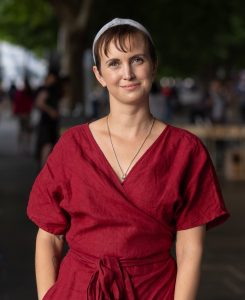
About Charlotte Colwill
Charlotte began her career as a bookseller at shops including Waterstones, Daunt Books and Foyles, before beginning her agenting career at Tibor Jones and Jo Unwin Literary Agency, before launching Colwill & Peddle with Kay Peddle in 2022. She represented a broad range of authors, writing children’s books, genre fiction, and non-fiction, and is always on the lookout for more.
About Donna Greaves

Donna is a literary agent from South East London. She joined Colwill and Peddle in September 2025, prior to this she worked as editorial manager at Jo Unwin Literary Agency. She represents Sunday Times bestselling author Lucy Easthope and is building a list in commercial, book club and accessible literary fiction and narrative non-fiction.
Published: 3 November 2025
class="post-78629 post type-post status-publish format-standard has-post-thumbnail hentry category-news"Announcing the launch of ‘London Writers Centre’, the new name for Spread the Word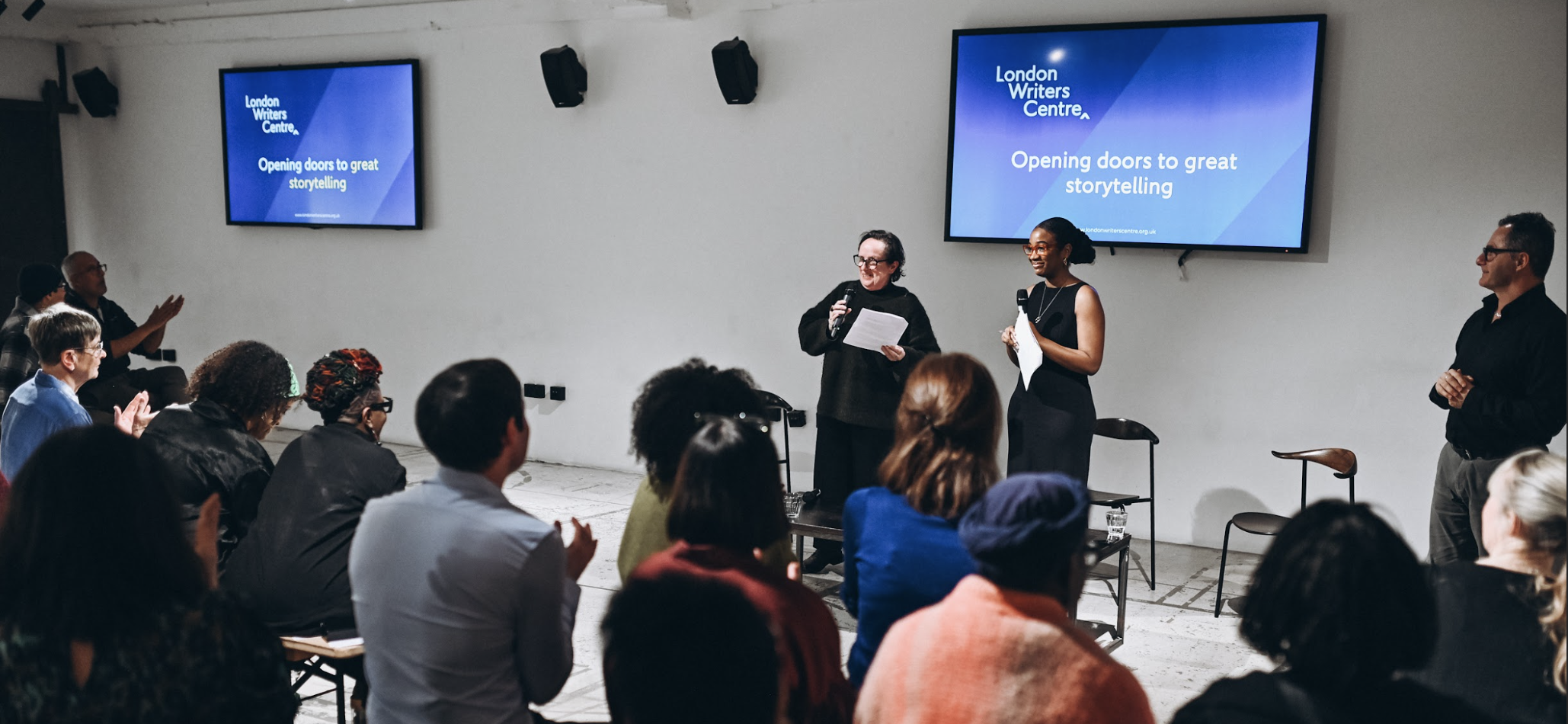
We are delighted to announce that Spread the Word will become London Writers Centre from 10 December 2025.
Why London Writers Centre?
In our 30th year, we are stepping forward with a new name and brand that reflects our purpose: opening doors to great storytelling, supporting underrepresented writers and connecting communities to the stories that matter.
London Writers Centre will continue to change the landscape for writers and the stories we see, read and hear. In 2026 alone, we will host the fifth edition of Deptford Literature Festival, the second Wellcome Collection Non-Fiction Awards and the sixth London Writers Awards. We will be partnering with Eve White Literary Agency for There is Only Narrative: Non-Fiction Demystified, which includes a competition and masterclasses. Other programmes include the Lewisham Youth Club Project, Young Writers Collective and the CRIPtic x London Writers Centre Salon.
Our future ambitions are for London Writers Centre to have a physical space – creating a vibrant hub for writers to gather, learn and collaborate, and a visible centre for London’s diverse literary life.
Why now?
Celebrating three decades of championing intersectional voices and stories in publishing, the change from Spread the Word to London Writers Centre marks our intention to future proof and expand our mission – for underrepresented writers to get their work into the world and connect communities with words and stories. It represents our response to an urgent and continued need to discover and advocate for writers and communities often left out of mainstream narratives.
Founded as Spread the Word in 1995 by Booker Prize winning novelist Bernardine Evaristo and Chair of English PEN, Ruth Borthwick, London Writers Centre is now led by Ruth Harrison. Under her leadership, the organisation has continued to present and support career changing opportunities for underrepresented writers through festivals, partnerships, research, awards and programmes in London, nationally and internationally.
Ruth Harrison, Director of London Writers Centre, said: “In 2025, with a desire to raise the profile of the organisation and reach more people, we have changed our name to London Writers Centre. We’ve spent three decades nurturing writers, championing unheard voices and making literature accessible to all. Under our new name, we are still working towards the same vision: a world in which literature is accessible to everyone.”
Bernardine Evaristo commented: “So much has happened in society, culture, education and literature in the past thirty years. The literature landscape has become a lot more inclusive and it’s heartwarming to know that Spread the Word – brilliant, pioneering, legendary – has always been part of that drive towards change, and is still going from strength to strength. Spread the Word has earned the right after 30 years to call itself the London Writers Centre.”
Ruth Borthwick said: “Spread the Word’s mission was to create a literary scene in South London. In a nation where we seem to be going backwards, it’s vital that the London Writers Centre builds on the work of thirty years to widen our literary landscape further and bring new and exciting voices to eager readers.”
Aimée Felone, Chair of London Writers Centre, said: “Spread the Word has an incredible legacy of creating space for writers and stories, in multiple forms, that have and continue to be disregarded. This new evolution as London Writers Centre is an incredible cementing and evolution of the work that has been done and the new spaces we want to expand in.”
Our 30th Anniversary was marked with a newly commissioned work from Momtaza Mehri. Momtaza Mehri said: “London Writers Centre has played a profound role in my journey as a writer. Through mentorships and development programmes, it’s provided an encouraging space for writers taking tentative steps, honing their craft, and finding literary community. I don’t know where I would be without this support. It made the writing life a less lonely one, and above all, seem stirringly possible.”
The London Writers Centre’s new website and brand launch on 10 December at www.londonwriterscentre.org.uk.
We are also taking part in the Big Give Christmas Challenge to raise funds towards our Lewisham, Borough of Literature campaign. Visit biggive.org/campaign to find out more and donate.
Image: Kashif Haque.
Posted Thursday 27 November 2025.
class="post-78501 post type-post status-publish format-standard has-post-thumbnail hentry category-news"Get crafty this festive season with local poet Helen Bowell
Drop in on this creative and crafty workshop for all ages, hosted by poet Helen Bowell.
When: 11am – 1pm, Friday 5 and Saturday 6 December.
Where: Lewisham Shopping Centre.
Cost: Free, no booking required.
Who is it for: no experience required, suitable for all ages.
We’ll use magazines, wintry poems and more to create unique cut-up greetings cards for the festive season. There will also be a chance to write poems of your own, with stockings of prompts and inspiration to get you started. No experience required, and all ages welcome! Please note that parents/ carers need to stay with children during the workshop.
These workshops are free to attend, but donations are welcome. Spread the Word is taking part in the Big Give Christmas Challenge, so anything you are able to give at the workshops will be doubled. All the funds raised will be spent on literature and storytelling activities held in Lewisham in the new year, all of which will be free to attend.
Thank you, Lewisham Shopping Centre, for hosting these fun, festive workshops.
Find out more about the Big Give Christmas Challenge.
Posted Thursday 20 November.
class="post-78212 post type-post status-publish format-standard has-post-thumbnail hentry category-news"Eve White Literary Agency and Spread the Word launch There Is Only Narrative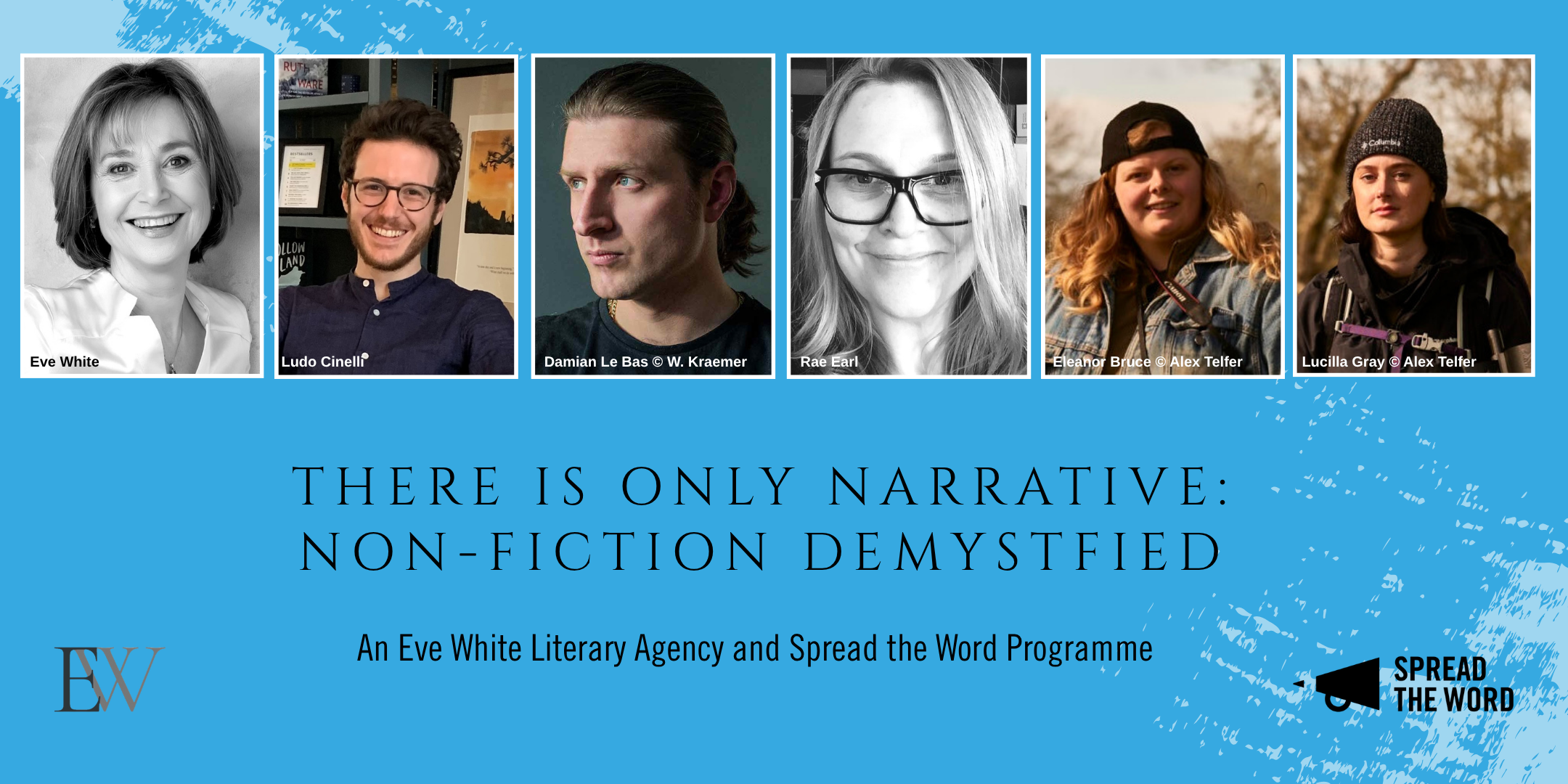
Spread the Word, London’s literature development agency, is delighted to announce There Is Only Narrative: Non-Fiction Demystified with the Eve White Literary Agency which aims to find and develop new Non-Fiction writers from backgrounds underrepresented in UK publishing. The programme addresses the challenging conditions of the non-fiction market with sustained craft and career development for new and emerging non-fiction authors.
There Is Only Narrative: Non-Fiction Demystified launches on 18 November 2025 with an online survey to writers to better understand barriers to writing Non-Fiction and what support they would like to see from the publishing and agenting industries. The survey includes a sign-up link to receive There Is Only Narrative: Getting Started with Writing a Non-Fiction Proposal a bespoke document written by the Eve White Literary Agency to support writers in developing a proposal for their book idea.
On Tuesday 9 December, 7pm, there will be a free online panel event with the editors Beth Eynon, Assallah Tahir and Shammah Banerjee, chaired by Eve White and Ludo Cinelli, which will explore the opportunities in the Non-Fiction market and demystify the processes of acquiring and commissioning Non-Fiction books.
Eve White says: “We have followed Spread the Word’s crucial work closely for many years and we are delighted to partner with them on this project. We aim for it to be a springboard for many future non-fiction classics.”
There will be three free online masterclasses in 2026 exploring different aspects of writing Non-Fiction. The workshops will be led by Damian Le Bas, author of The Stopping Places, Rae Earl, author of My Mad Fat Diary, and Eleanor Bruce and Lucilla Gray, authors of the forthcoming Things We Found in the Ground.
From April-June 2026 Spread the Word will be running a competition for disabled, working class upbringing, LGBTQIA+, low-income, and Black, Asian and Global Majority writers. The competition will select a cohort of six writers for further developmental support from Spread the Word and the Eve White Literary Agency, including a group session with Damian Le Bas.
Ludo Cinelli, Managing Director and Agent, says: “E.L. Doctorow wrote “There is really no fiction or non-fiction; there is only narrative.” We often find non-fiction overlooked in writer development programmes, but it is a genre essential to global narratives. We are excited to find those real-life stories that writers are dying to tell.”
Lucilla Gray and Eleanor Bruce, say: “All stories should have an opportunity to be told from underrepresented perspectives. We’re looking forward to sharing our experience as debut authors for our masterclass with There Is Only Narrative: Non-Fiction Demystified and hope to encourage others to pick up the pen and write their stories from unlikely or even muddy places.”
Bobby Nayyar, programme manager at Spread the Word, says: “We are delighted to be working with the Eve White Literary Agency and a fantastic range of non-fiction editors and authors. There is an urgent need for more investment into developing talented new writers in this space. We are excited to be working the team at Eve White and look forward to seeing what new writing comes out of it.”
For more information about the project please visit: https://www.spreadtheword.org.uk/projects/there-is-only-narrative
Published 18 November 2025
class="post-78330 post type-post status-publish format-standard has-post-thumbnail hentry category-news"Spread the Word is taking part in the Big Give Christmas Challenge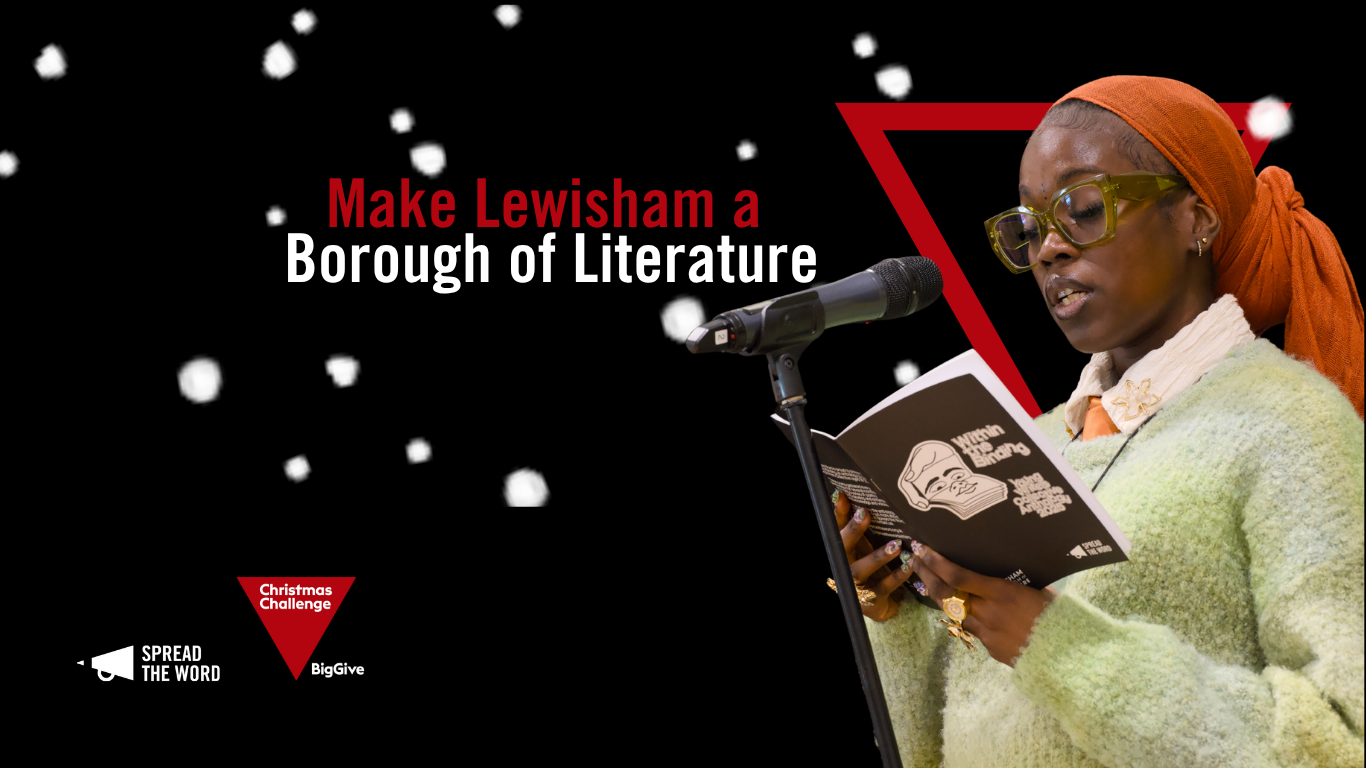
We’re excited to announce we are taking part in the Big Give Christmas Challenge this year to raise £10,000 in just 1 week!
All donations made during the campaign week, from 2 – 9 December, will be doubled. The funds raised will be used to help make Lewisham the UK’s first Borough of Literature.
Thank you to our generous champion funder the Reed Educational Trust Limited, who will match every donation made to help us reach our target.
What are we fundraising for?
Through the Big Give Christmas Challenge, we hope to raise £10,000. Every penny of that money will go towards making Lewisham the UK’s first Borough of Literature.
We will use the funds raised to run creative writing workshops, career development opportunities for writers, community storytelling events and generate an archive of local stories. By raising the money to run these activities, we will be able to test and shape, in conversation with the community, our concept for the first ever Borough of Literature.
Why is this important?
This campaign is important because 31% of Lewisham’s children leave primary school unable to write at national levels. There’s a north-south divide in cultural activities and many people face barriers to taking part. Without active initiatives, literature remains out of reach for many of our communities. And the rich mix of Lewisham’s 75 nationalities are rarely represented in publishing or storytelling. Our research found that publishers worry that books by writers of colour “won’t appeal” to audiences, so diverse stories often go untold. This is not good enough. Lewisham deserves better. You deserve better.
How does this build towards making Lewisham the UK’s first Borough of Literature?
Our plan is that by Autumn 2026, thanks to your donations, we will have mapped the impact of these activities and know even better what our community needs and wants. We’ll be able to submit a funding bid to expand our Borough of Literature activity across the borough, creating a model that one day will be copied by other London boroughs and who knows, maybe even other cities!
“Growing up in Lewisham, and still being here, it’s a place with this real plethora of cultures, people and stories as well. It would be great for people to have the space to tell their stories, for it to not feel it’s tied directly to literature or the written word, but just storytelling in general.”
– Caleb Azumah Nelson, Award-winning author, Lewisham resident
How can you get involved?
Before the campaign week, we are collecting pledges. If you are able to make a donation of any size towards our £10,ooo goal, it’ll be doubled and make double the difference.
Please consider pledging your support.
At the start of the campaign week, on 2 December, we will reach out to everyone who has made a pledge with instructions on how to donate. All donations will be made via our Big Give campaign page and must be made during the campaign week from Tuesday 2 December to Tuesday 9 December.
class="post-78086 post type-post status-publish format-standard has-post-thumbnail hentry category-news"Scribner at Simon & Schuster wins Gab Torr’s debut novel
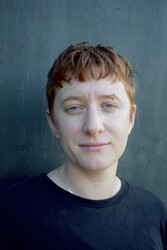
Gab Torr, a 2021 London Writers Awardee, has been signed by Scribner at Simon & Schuster after a three way auction for Hard Place.
A sharp, contemporary debut about survival and selling out, Hard Place asks ‘what happens when our political ideals clash with our messy lived realities’. The book will be published in June 2026.
Read more about Hard Place and pre-order here.
Image: Freya Ward-Lowery.
Published: Thursday 31 October 2025.
class="post-78080 post type-post status-publish format-standard has-post-thumbnail hentry category-news"Joe Eurell wins 2025 Crime Writers’ Association Award
Following his commendation on Case Closed — a 2023 programme run by Spread the Word in partnership with the C&W literary agency — Joe Eurell has been announced as the winner of the 2025 Crime Writers’ Association Emerging Author Dagger.
The award, which recognises outstanding work by an unpublished writer, was presented to Joe for his novel Ashland, a crime novel about the first female Chief of Police of a small town in Arizona. Judges praised the work for its strong sense of place and layered characters.
Joe is currently being co-represented by Curtis Brown and the C&W literary agency.
Read more about the Awards here.
Published: Thursday 31 October 2025.